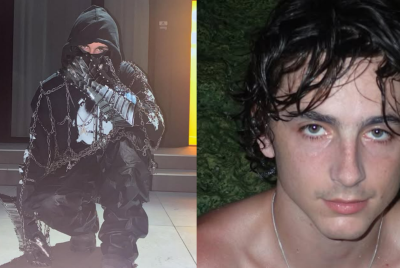Diddy's 'Drug Rehab and Redemption' Plan — Why Observers Aren't Convinced It's Genuine
Experts and fans doubt the authenticity of his reform, noting its timing after convictions and lawsuits

Sean 'Diddy' Combs, once one of the most powerful figures in hip-hop, has begun serving his federal prison sentence at FCI Fort Dix in New Jersey.
The 55-year-old music mogul was transferred early on Thursday from Brooklyn's Metropolitan Detention Centre to begin a two-and-a-half-year term after being convicted on charges linked to drug and assault offences. Federal prosecutors had initially sought an 11-year term, arguing that Combs' conduct showed he remained 'unrepentant'. The transfer marks a significant shift from luxury to incarceration for a man long associated with excess and influence.
While behind bars, Combs has reportedly enrolled in rehabilitation and behavioural change programmes, including drug treatment and violence prevention therapy. His legal team describes this as part of a personal effort to confront past behaviour and to 'maximise family visitation and rehabilitative efforts'. Analysts, however, suggest his apparent reform may serve both personal recovery and legal strategy.
Rehabilitation and behavioural programmes
Court filings confirm that Combs requested placement at Fort Dix to join its residential drug abuse programme and to maintain contact with his family. His lawyers called the prison's treatment services 'critical to addressing substance use issues' and to supporting reintegration after release.
Not all reported details can be verified. There is no public record linking Combs to the federal STOP (Specialised Treatment for Optimised Programming) initiative or to therapy under a 'Dr Harry K. Wexler'. Reports suggest these claims originated with his legal team rather than official documentation.
For now, the only confirmed facts are his transfer to Fort Dix and his stated intention to participate in drug treatment while in custody.
Why critics remain unconvinced
Legal experts note that entering rehabilitation before or during sentencing is a familiar tactic used to signal remorse and potentially influence outcomes. Dr Drew Pinsky told TMZ that while the programmes are legitimate, genuine reform 'requires years of extensive treatment' and consistent behaviour, neither of which can yet be demonstrated.
Observers also question the timing of Combs' public apology and programme enrolment, both announced after damaging video evidence and civil lawsuits emerged. The sequence, they argue, makes his apparent redemption appear reactive rather than reflective.
Public Reactions
Online responses mirror expert scepticism. Users on Reddit and X questioned whether Combs' low-security placement and access to treatment reflect privilege, with one writing, 'He gets to do time at a low-security facility near family — what a joke of a justice system for the wealthy.' Others made light of his location, quipping that 'the party king is in Fort Dix'.
Comment
by u/MarvelsGrantMan136 from discussion
in Music
Comment
by u/MarvelsGrantMan136 from discussion
in Music
Comment
by u/MarvelsGrantMan136 from discussion
in Music
Diddy has officially checked in at Fort Dix to begin his prison sentence.
— FearBuck (@FearedBuck) October 30, 2025
He is scheduled to be released on May 8, 2028 pic.twitter.com/ijJMCKDGqH
There’s something poetic about Diddy being sent to Fort Dix.
— Brandon Ramos (@im_anonhuman) October 31, 2025
Broader implications
If Combs' efforts prove genuine, they could mark a rare moment of accountability within an industry often criticised for enabling excess and silence around abuse. But if his transformation is largely performative, it risks deepening public cynicism towards celebrity 'rehab for redemption' narratives.
For now, observers agree that Diddy's involvement in rehabilitation and violence prevention programmes is real, but the sincerity behind it remains uncertain. Whether it becomes lasting change or a short-lived legal manoeuvre will depend less on his words and more on his conduct once the cameras fade and his sentence is complete.
© Copyright IBTimes 2025. All rights reserved.





















